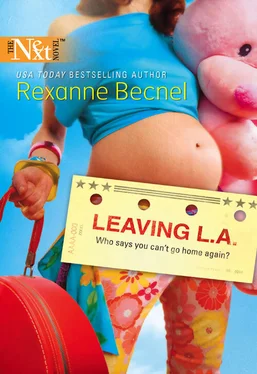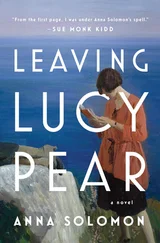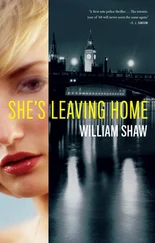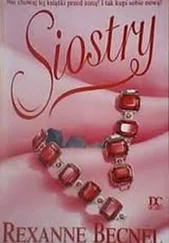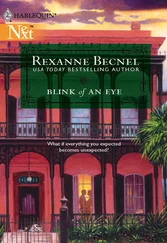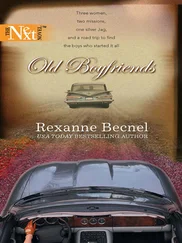“You visiting here, Zoe? A tourist?” he asked, once I’d pulled my hand free of his.
“Oracle gets tourists?”
“You’d be surprised. Oak trees dripping with Spanish moss. Natural spring waters. We have our own winery now and a railroad museum. Not to mention all the water sports on Lake Pontchartain.”
“That cesspool?”
“It’s clean now. Regularly passes all state requirements for swimming.”
“Gee, it all sounds so exciting.” But I softened my sarcasm by laughing.
He grinned. “That’s the point. It’s quiet and relaxing here. The perfect escape from the rat race.”
“Yeah? Well, we’ll see.”
“So you’re not a tourist. That means you’re visiting someone.”
I glanced away from his lean, smiling face. He was too smooth, too easy to talk to. Then I realized he’d been going into the newspaper office, and all my senses went into red alert mode. “You work here?” I gestured to the office.
“Sure do. Editor-in-chief.”
Editor-in-chief? Shit!
“Plus beat reporter, features reporter, obituary writer and head of advertising. We’re a small outfit, Wednesday and Sunday editions only.”
“Cool,” I said. But I meant just the opposite. The last thing I needed was for some local-yokel reporter to figure out that Zoe Vidrine was actually G. G. Givens’s ex-girlfriend Red Vidrine and try to make a big deal about it.
I shifted my purse to my other shoulder. As I did so, his gaze fell to my body. Just one swift, all-encompassing glance. But it was enough to remind me that he was a man like every other man in the world. To them I was just a hot babe who looked as if all she wanted was his leering, drooling attention. “Well. See you around,” I said. Then I turned and made for the library, my sanctuary when I was a kid, and hopefully my sanctuary now. I willed myself not to look back at him, but I knew he was watching. I felt it.
Inside, the library was cool and dim and so much like when I was a kid that a wave of relief shuddered through me. Same big wide desk; same art deco hanging lamps; same oriel window where I used to sit for hours reading everything from Seventeen Magazine to Alexandre Dumas to Shere Hite. I learned a lot about sex from Shere Hite. Too bad more men hadn’t read her.
Anyway, my oriel was just like I remembered except for new, dark green upholstery on the cushions.
I looked around. Mr. Pinchon couldn’t still be the head librarian. I approached the woman at the front desk.
“Can I help you?” She smiled like she really meant it.
“I was wondering, does Mr. Pinchon still work here? When I was a kid he used to suggest a lot of books for me to read.”
“Mr. Pinchon? I don’t know him. Oh, wait. He retired a couple of years ago before I started working here.”
“Oh.” I looked away. I shouldn’t feel disappointed, but I did. The one person who’d understood me, who’d cared enough to make sure I read across the spectrum. He’d made me a lifelong reader—and a sometimes writer. But of course he was gone. He was old back then. By now he was probably dead.
“Can I help you with anything else?” the librarian asked. “Do you have a current library card?”
“No.”
“Well, we can easily remedy that.” She handed me a pen and a registration form, and I started to fill it out. Until I caught myself. I didn’t need to advertise that I was in town. I’d planned all along to keep a low profile, to just swoop down, collect my inheritance and split.
Then why’d you tell that newspaper guy your name?
I slid the pen and paper back across the desk. “I’m just in town for a week or two. Um…could you direct me to the microfilm records, the ones for the Northshore News?”
“Sure. You know, their office is right next door if you need to talk to Joe or Myra. She’s worked there forever.”
“Thanks.” I gave her a bland smile. “How long has he been there?”
“Joe? Let’s see now. I think three—no, four years. He used to be a big-time reporter in New Orleans. For the Times-Picayune. But when he and his son moved here, he decided celebrity news wasn’t as exciting as it used to be.”
I stiffened in alarm. Celebrity news? That’s what he’d written about? Great.
“Well, I can see why he left it behind,” I said. “Most of it’s a lot of PR hype. But what I’m looking for…” I went on, wanting to change the subject “…is local news from the mid-eighties on.” I’d left town in 1983, Mom had died in 1986 and Alice had obviously married sometime after that. I wanted to see what had been said about the Vidrine hippie commune, how it had petered out and how Alice had changed everything. Because like it or not—like her or not—I had to admit she’d done an amazing transformation of the place.
Some time later the librarian—Kenyatta was her name—startled me as I hunched over a microfilm screen. “Sorry to disturb you,” she said. “But the library closes in fifteen minutes.”
“What time is it?”
“Quarter to six.”
I’d been here three and a half hours?
“Okay. Thanks. I’ll finish up here in a minute. What time do you open tomorrow?”
Right after she left I went back to the article I’d been reading about the christening of Daniel Lester Collins at the Simmons Creek Victory Church. The picture was grainy, but it was obviously Alice holding her newborn son. Next to her stood a gaunt, older man. Surely that wasn’t her husband?
But it was. The Reverend Lester Collins had presided over the christening of his firstborn child. He had a huge grin on his face.
And why shouldn’t he? He had a young, pretty wife who—knowing Alice—had probably done his every bidding. And she’d given him a son. For him, life must have been pretty damn good.
Had it been good for my sister?
As I left the library and headed up Highway 1082 to the farm, everything I’d read rolled around in my head. Mom had died of AIDS.
About three months before her death, her illness became public knowledge. In 1986 rural Louisiana that had been a horror too huge to ignore, and all sorts of hell had broken loose. There had been letters to the editor. Demands that the farm be quarantined, that the house be burned down to kill the germs. The American Civil Liberties Union in New Orleans had actually become involved.
By the time Mom died, only she and Alice were left on the farm. All Mom’s freeloading friends had split. There was no official obituary notice, but afterward there had been a slew of articles and more letters to the editor about the wages of sin and the plague festering at Vidrine Farms.
I frowned and turned down the azalea-lined driveway. How had Alice stood it? Why on earth had she stayed? And why, when she called, hadn’t she told me it was AIDS?
Then again, that wouldn’t have changed my reaction.
I sighed. Despite my carefully cultivated disdain for my spineless, mealymouthed sister, I had to give it to her. She’d showed them all in her own, do-gooder way. I would probably have sponsored a rock festival on the farm and invited the most offensive acts I could find. Then I would have ended it by making a giant bonfire out of that house.
I pulled to a stop and stared at the house now, so pretty and neat and innocuous-looking. I would have lit the fire gladly but not for the reason ranted about in that stupid newspaper. I would have burned it down for my own satisfaction, to obliterate once and for all the miserable childhood I’d lived in it.
The sun was sinking behind the house, casting it in soothing shadows, a photo-op for This Old House. I closed my eyes and rested my forehead on the steering wheel. Burning it down wouldn’t have helped. I would have loved doing it, watching the destruction, feeling the heat, smelling that scorched wood stench. But it wouldn’t have changed anything. I was the product of my rotten childhood, pure and simple. And nothing symbolic would change that.
Читать дальше
